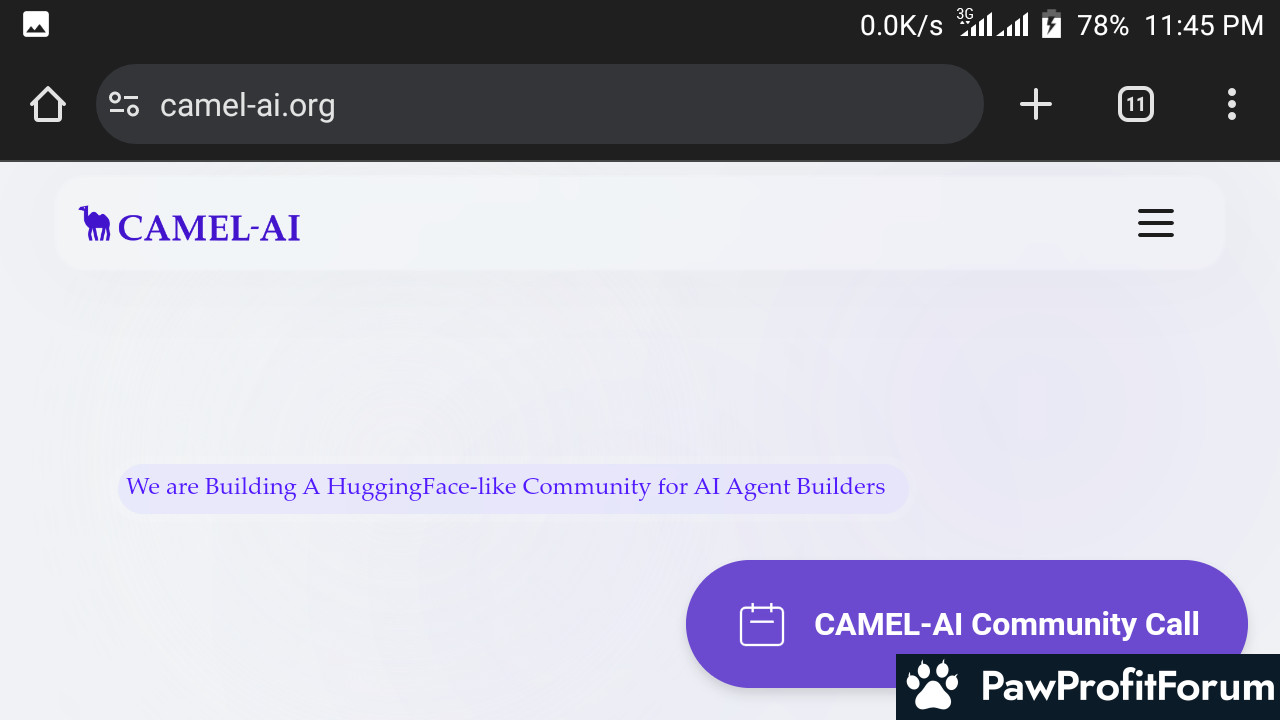CAMEL-AI.org is an open-source community focused on researching AI agents for data generation, world simulation, and task automation. This research collective works to explore the behaviors, abilities, and potential risks of AI agents through extensive studies and collaborative research.
What CAMEL-AI.org Offers
CAMEL-AI.org offers several research projects and tools that advance the field of multi-agent AI systems. Their main projects include CAMEL (Communicative Agents for "Mind" Exploration of Large Language Model Society), CRAB (Cross-environment Agent Benchmark for Multimodal Language Model Agents), AgentTrust, OASIS (Open Agent Social Interaction Simulations with One Million Agents), and Loong. The community brings together over 100 researchers who work together on cutting-edge research in multi-agent systems.
Benefits of Contributing to CAMEL-AI.org
- Being part of CAMEL-AI.org gives researchers access to a collaborative environment where they can work with others who share their interests in AI agent research. This community approach helps advance knowledge faster than individual efforts.
- The open-source nature of CAMEL-AI's projects means that researchers from various backgrounds can contribute to and build upon existing work. This openness promotes innovation and rapid progress in the field.
- Contributors can gain recognition for their work within the AI research community, potentially leading to academic and professional opportunities.
- Participation in CAMEL-AI's research helps address important questions about AI safety, capabilities, and potential applications, contributing to the responsible development of these technologies.
Research Projects and Impact
The CAMEL project explores how AI agents communicate and interact, providing insights into the emergence of complex behaviors in AI systems. This research helps us understand how language models might develop social dynamics when they interact with each other.
CRAB benchmarks the capabilities of multimodal language model agents across different environments, providing valuable metrics for measuring progress in this field. This helps researchers identify strengths and weaknesses in current AI agent designs.
AgentTrust focuses on building trustworthy AI agents that can operate reliably and safely in various contexts. This work is crucial for developing AI systems that can be deployed with confidence in real-world applications.
OASIS pushes the boundaries of large-scale AI simulations by creating environments with up to one million agents interacting simultaneously. This allows researchers to study emergent social behaviors and complex interactions that might not be visible in smaller simulations.
Loong represents another step forward in CAMEL-AI's research portfolio, though specific details about this project are not provided in the available information.
Final Thoughts
If you're interested in AI research, particularly in multi-agent systems and their applications, CAMEL-AI.org appears to be a legitimate and valuable resource. The community's focus on open-source collaboration and frontier research suggests it's a reputable platform for advancing knowledge in this important field. Their various research projects address significant questions about AI capabilities and safety, contributing to the responsible development of these technologies.
What do you think? If you have any experience with CAMEL-AI.org, whether positive or negative, please share it in the comments below to help others make informed decisions.













